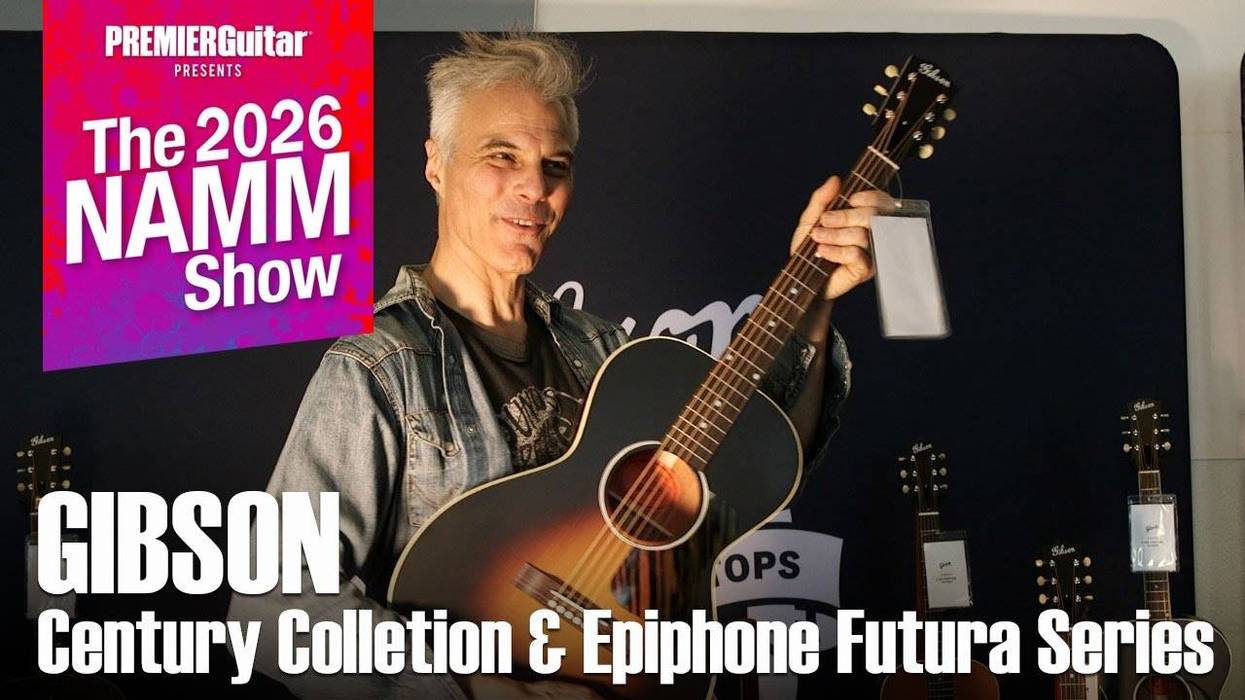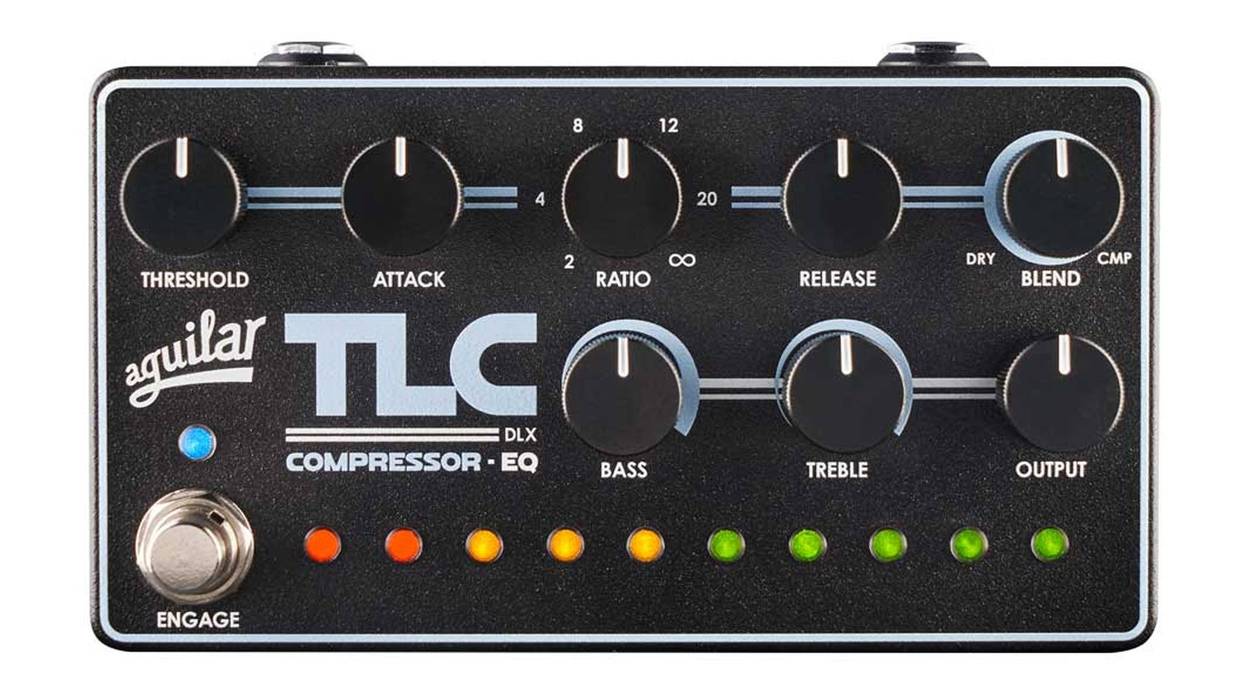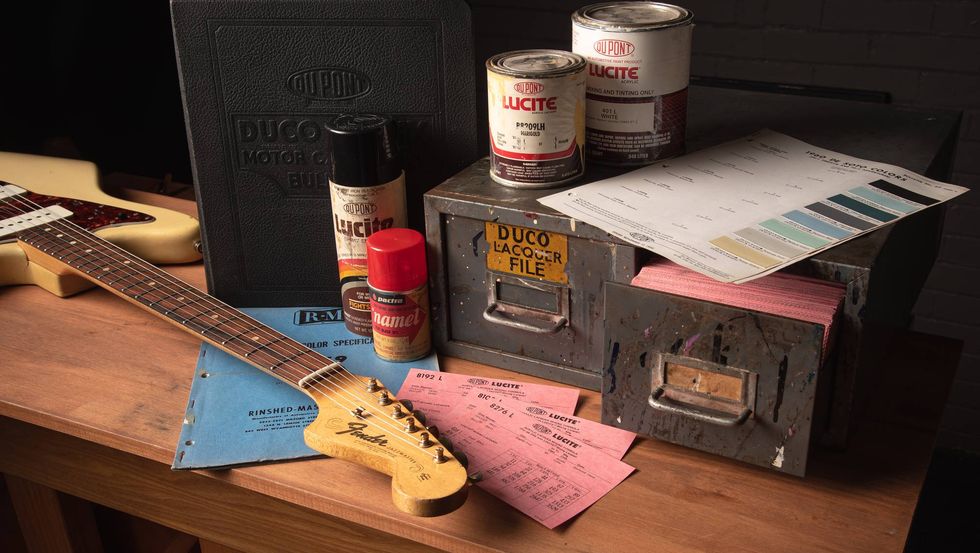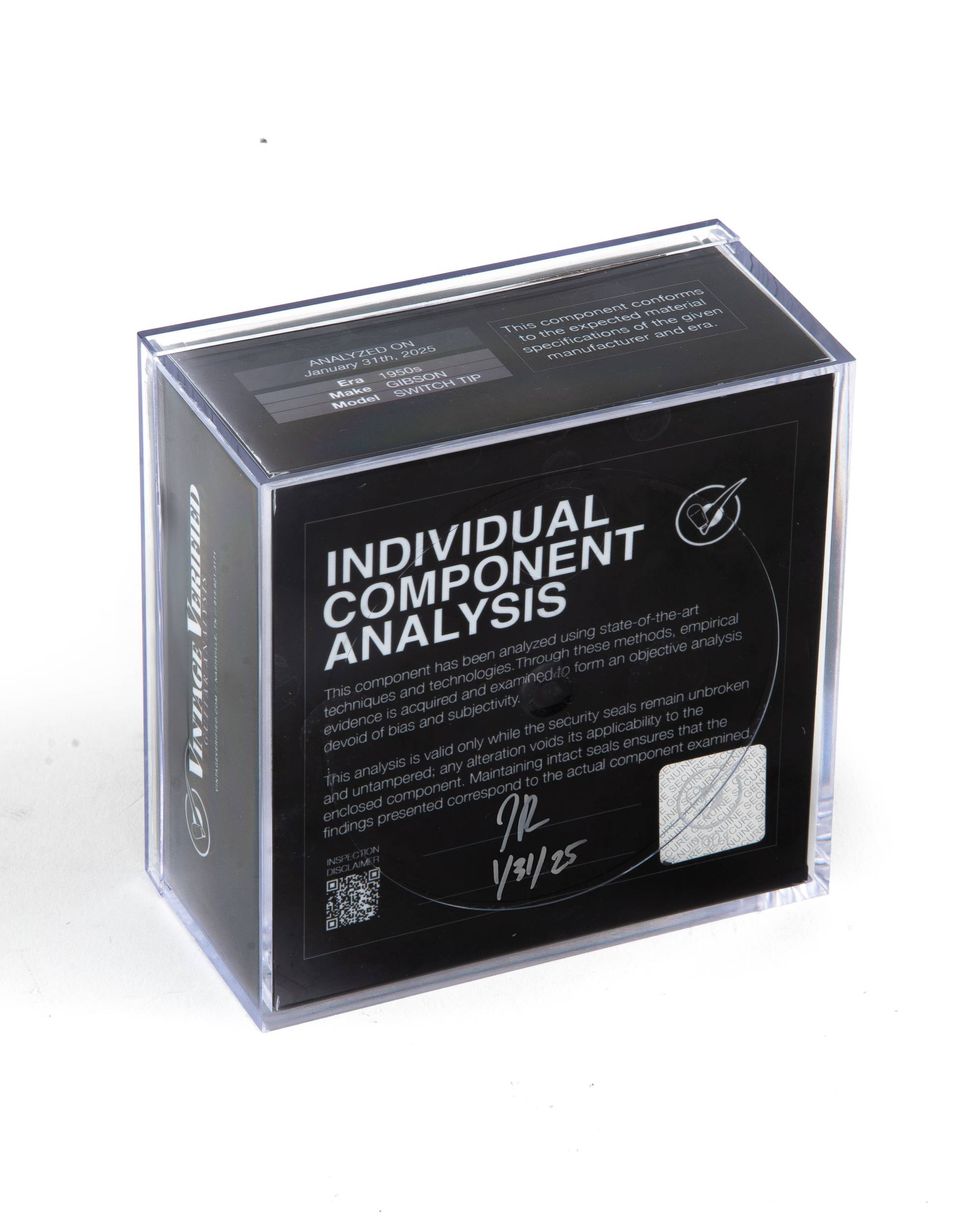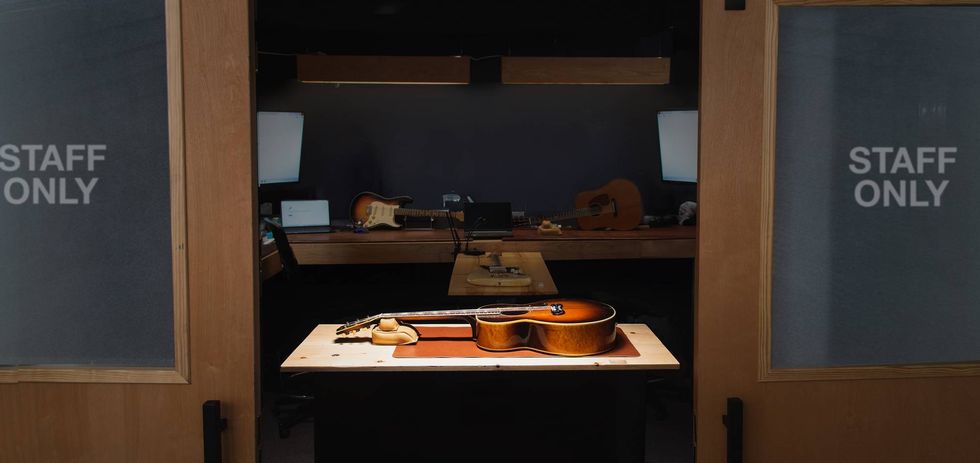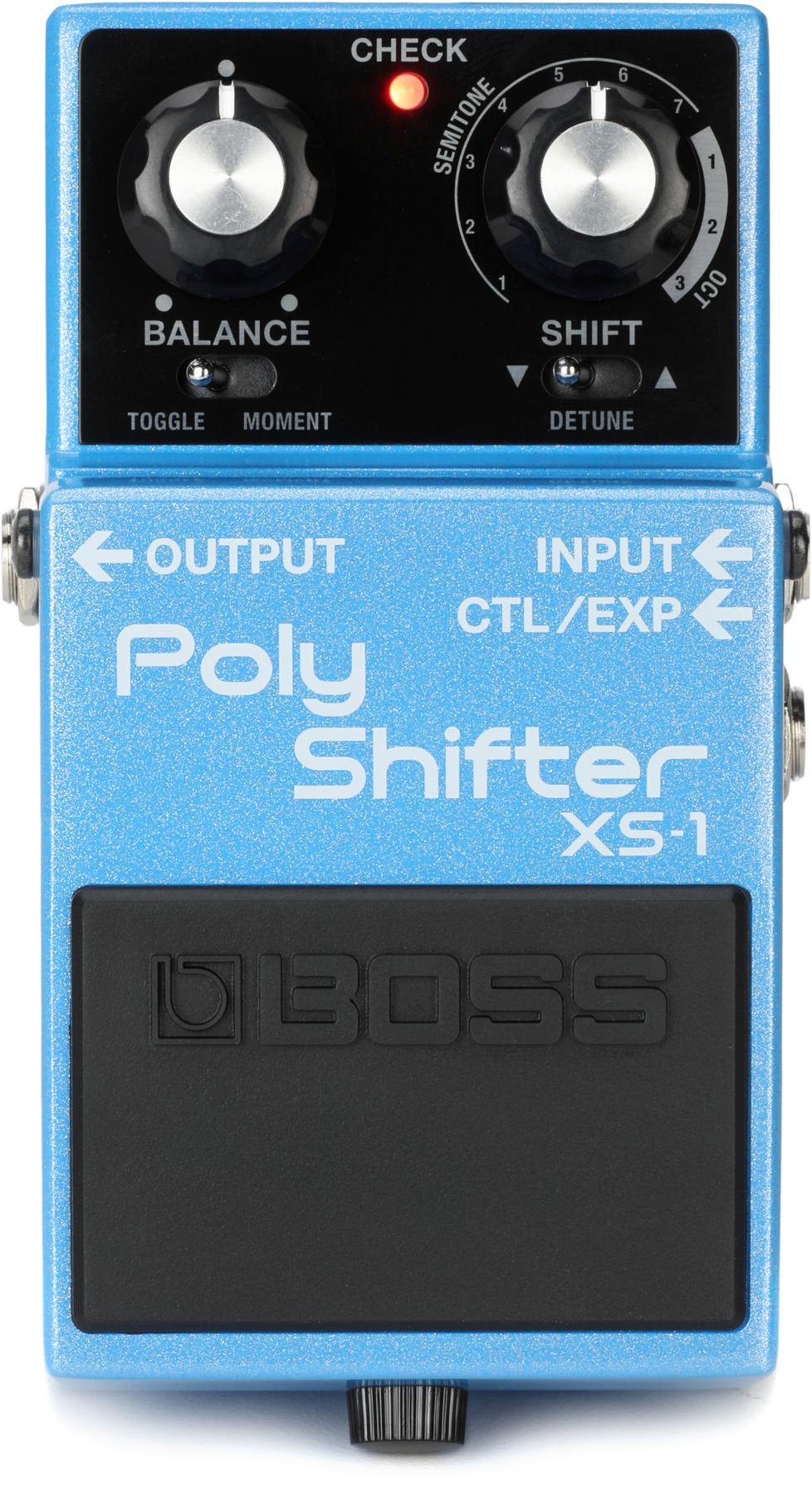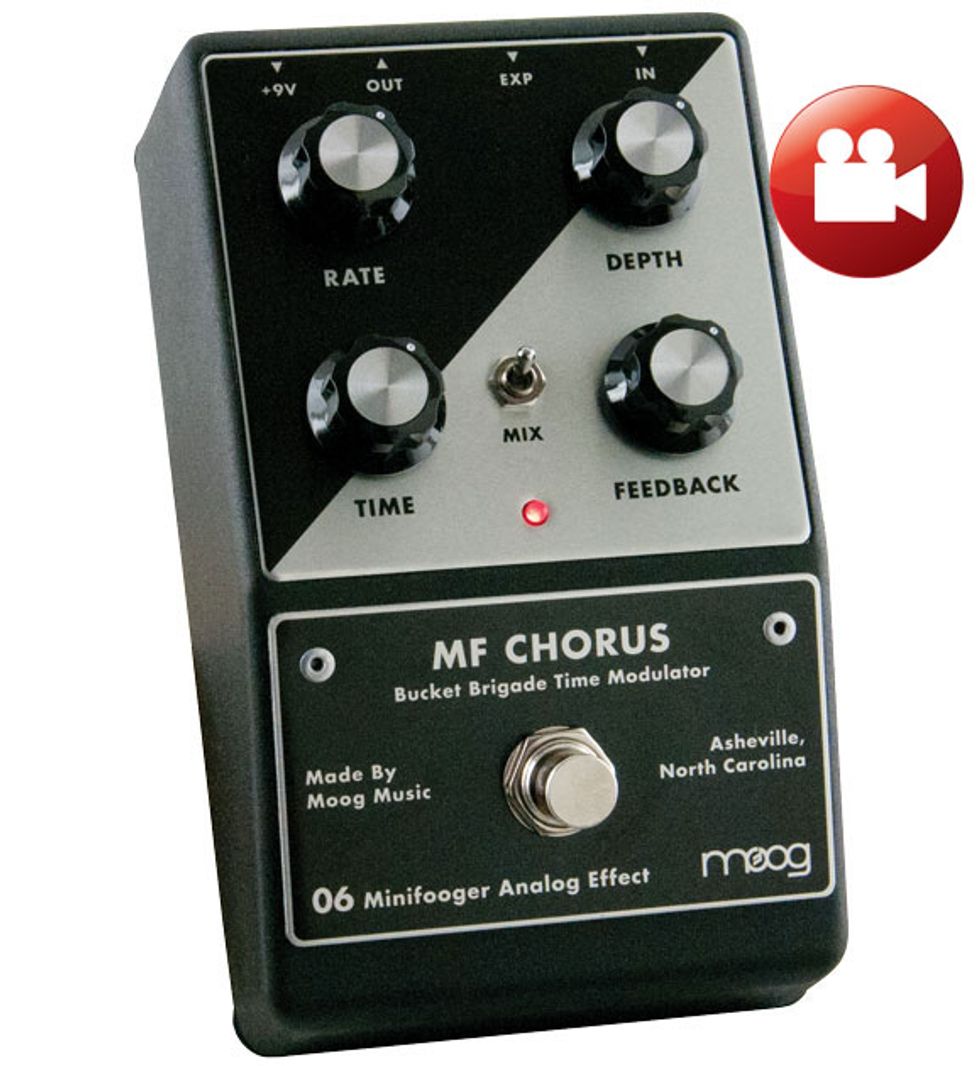
Late in his career, synthesis pioneer Bob Moog entered the stompbox market with a series of large format pedals cheekily named Moogerfoogers. Dr. Moog passed away in 2005, but Moog effects live on. Their current incarnations, dubbed Minifoogers, cram big-pedal functionality into standard-sized enclosures. And the newest Minifooger is the MF Chorus, an all-analog effect powered by bucket-brigade chips.
Simpler Than It Sounds
The MF Chorus feels familiar: Its rate, depth, time, and feedback controls need little explanation. But the three-position mix mini-toggle is something special. Its first two positions change the chorus effect from classic and airy to thick and syrupy, while the third position calls up vibrato mode. The 1/4" output jack works in stereo when you connect a TRS splitter cable. All jacks are conveniently located on the back panel, and as on most Moog pedals, there’s an expression pedal input jack. The power LED pulses in time with the modulation rate.
Ratings
Pros:
Not your grandfather’s chorus pedal. Goes beyond typical sounds.
Cons:
May be an investment for a seldom-used effect. Analog circuitry means a little noise.
Tones:
Ease of Use:
Build/Design:
Street:
$189
Moog Music MF Chorus
moogmusic.com
Expressively Yours
Fairly or not, chorus will always be associated with the ’80s. So I grabbed my ’81 Shergold Masquerader and plugged into a Simms-Watts 100 for maximum clean headroom. Inline were a Boss DS-1 (because, you know, the ’80s) and the MF Chorus.
With Moog gear it’s tempting to start with the crazy sounds, but I worked from mild to wild. Even in subtle applications this is a rich-sounding pedal. The chorus is a bit rounder and bolder than on a Roland JC amp (a gold-standard chorus circuit in my opinion). Flipping to the middle mix position lends a warbly, underwater feel reminiscent of an old Electro-Harmonix Polychorus. The switch’s third position generates swooping, room-shaking vibrato. These tones can be even more intense, and they’re especially awesome with an expressional pedal (not included) controlling the modulation rate.
Helmut Haas’s theories of psychoacoustics tells us that sounds separated by more than 40 milliseconds are perceived as separate events—that is, a sound and its echo—so most choruses stay beneath that threshold. But the MF Chorus tops out at 70 ms, long enough to generate a cool slapback effect. This enables both deeper-than-usual chorusing and more disorienting sounds. Playing with the rate and feedback settings, I could make my guitar sound like heels clacking down a hospital corridor, or generate a Doppler effect. Moog calls this the “film projector effect.” Is it useful? Not always, but it’s a cool chorus variation that may well inspire entire songs. It also rewards unconventional, prepared-guitar approaches: Adding my DS-1 and plucking notes behind the bridge while shaking the vibrato bar generated fantastically atmospheric sounds. (Something tells me Bob Moog would be cool with this.)
The Verdict
Moog has packed much sonic potential into this box. Players looking for more traditionally mellow tones may prefer the simplicity and low cost of standard two-knob chorus pedal. But those hoping to expand their sonic horizons will enjoy both the mellow and maniacal sounds generated by this latest Minifooger.
Watch the Review Demo:











